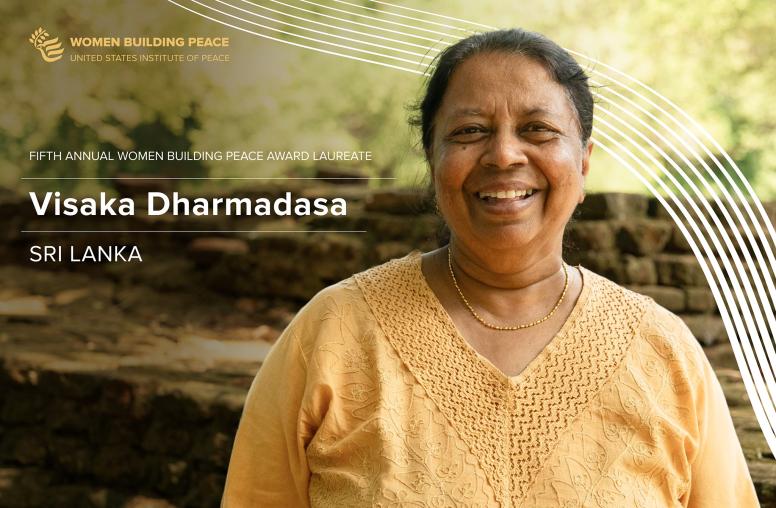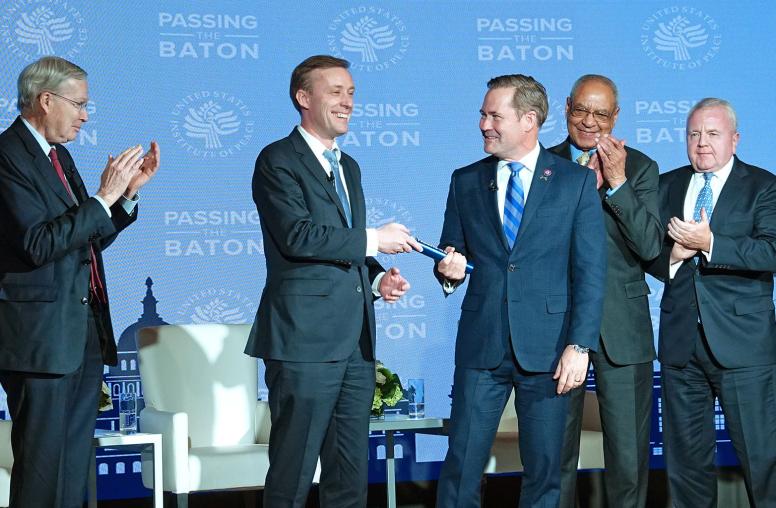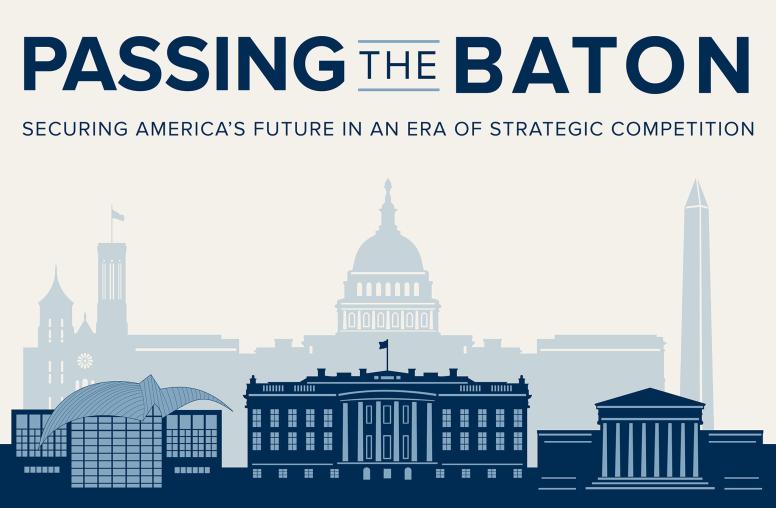U.S. Institute of Peace Announces 2002-03 Peace Scholars
Winners for 15th annual Peace Scholar competition selected.
The Peace Scholar fellowship recipients represent a diverse array of academic disciplines--political science, sociology, anthropology, history and others--and a cross-section of leading universities across the United States.
The Peace Scholar Program is one of the Institute's most competitive. This year's winners were selected in a rigorous competition from more than 144 applicants from 58 universities in 25 states, the District of Columbia, and 35 foreign countries. The program is open to any doctoral student, regardless of citizenship, enrolled in an American university and working on a dissertation related to the peaceful resolution of international conflict. Peace Scholars are selected by the Institute's Board of Directors based on recommendations by prominent academic experts and practitioners in fields related to international peace and conflict.
Since 1987 the Institute has awarded more than 150 Peace Scholar fellowships to students at about 60 universities. Former Peace Scholars continue to pursue successful careers in academia, government service, nongovernmental organizations, and the media. They represent an international network of experts on the analysis, management, and prevention of conflict.
This is the 15th annual Peace Scholar competition sponsored by the Jennings Randolph Fellowship Program of the U.S. Institute of Peace. The program is named in honor of former U.S. Senator Jennings Randolph of West Virginia, a vigorous proponent of the Institute's founding. The Peace Scholar program is part of the Institute's congressional mandate to support research, education, and training about peace and conflict in the international arena.
2002-2003 Peace Scholars
(September 1, 2002-August 31, 2003, unless otherwise noted)
Mr. Josip Dasovic
Department of Political Science, Brown University
"Social Networks as a Bulwark against Inter-Ethnic Violence at the Community Level in the Former Yugoslavia"
Ms. Gabriela M. Fried
Department of Sociology, University of California, Los Angeles
"Reconciling with Past Legacies: Memory and Trauma in Uruguay, 2000-2002"
Ms. Suzanne E. Fry
Department of Political Science, New York University
"When States Kill Their Own: Understanding the Legitimation Process"
Ms. Naveeda Khan (January-December 2003)
Department of Anthropology, Columbia University
"Authorizing the Muslim Speaking Subject: Ideological Formations and Religious Speech in Contemporary Pakistan"
Mr. John T. King
Department of Education, University of Washington
"Education for Mutual Understanding: The Case of a Cross-Cultural Contact Program in Northern Ireland"
Ms. Betsy O. Konefal (January-December 2003)
Department of History, University of Pittsburgh
"Rights, Identity, and the Politics of Concientización: Organizing for Racial and Social Justice in the Guatemalan Highlands, 1960-2000"
Ms. Erin L. McCandless
School of International Service, American University
"Transformative Participation in Policymaking: The Case of Zimbabwean Civil Society"
Mr. Daniel Monterescu
Department of Anthropology, University of Chicago
"Jewish-Arab Relations, Urban Space, and the State in Palestinian-Israeli Mixed Towns, 1948-2002"
Mr. Victor A. Peskin
Department of Political Science, University of California, Berkeley
"Conflicts of Justice: International Criminal Tribunals and the Politics of State Cooperation"
Ms. Rebecca P. Sewall
Institute for Conflict Analysis and Resolution, George Mason University
"Bartered Peace: Women and Conflict Management Strategies"
To contact any of the above scholars for an interview or to obtain a detailed listing of Institute experts with their biographies please contact the office of Public Affairs.
The United States Institute of Peace is an independent, nonpartisan institution established and funded by Congress. Its goals are to help prevent and resolve violent international conflicts, promote post-conflict stability and development, and increase conflict management capacity, tools, and intellectual capital worldwide. The Institute does this by empowering others with knowledge, skills, and resources, as well as by directly engaging in peacebuilding efforts around the globe.



